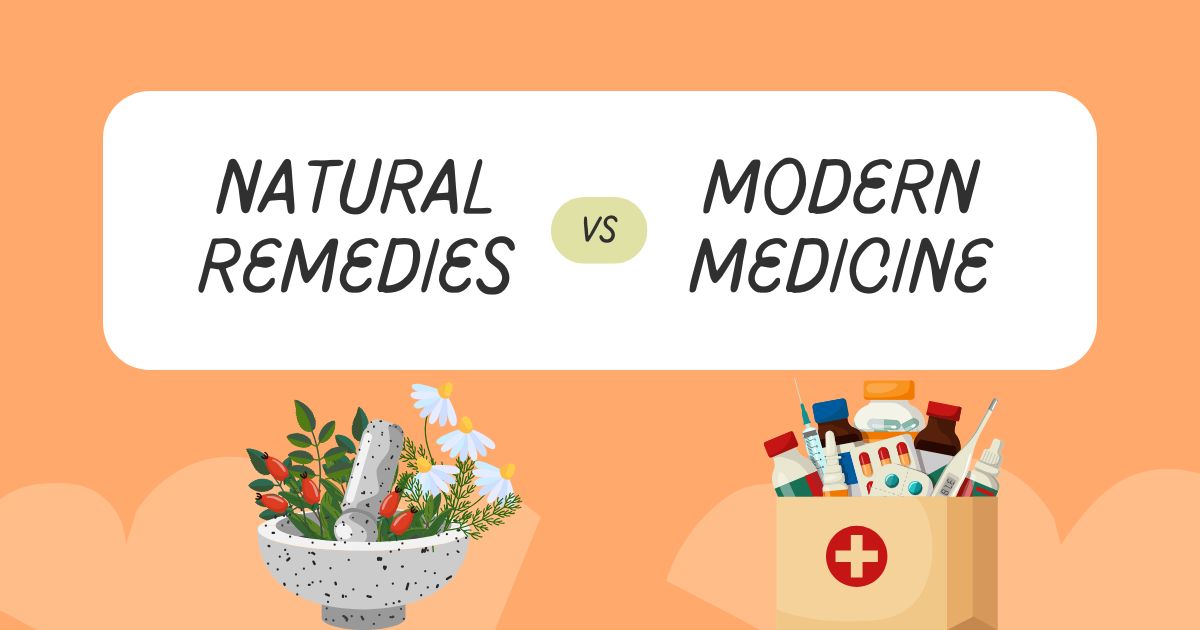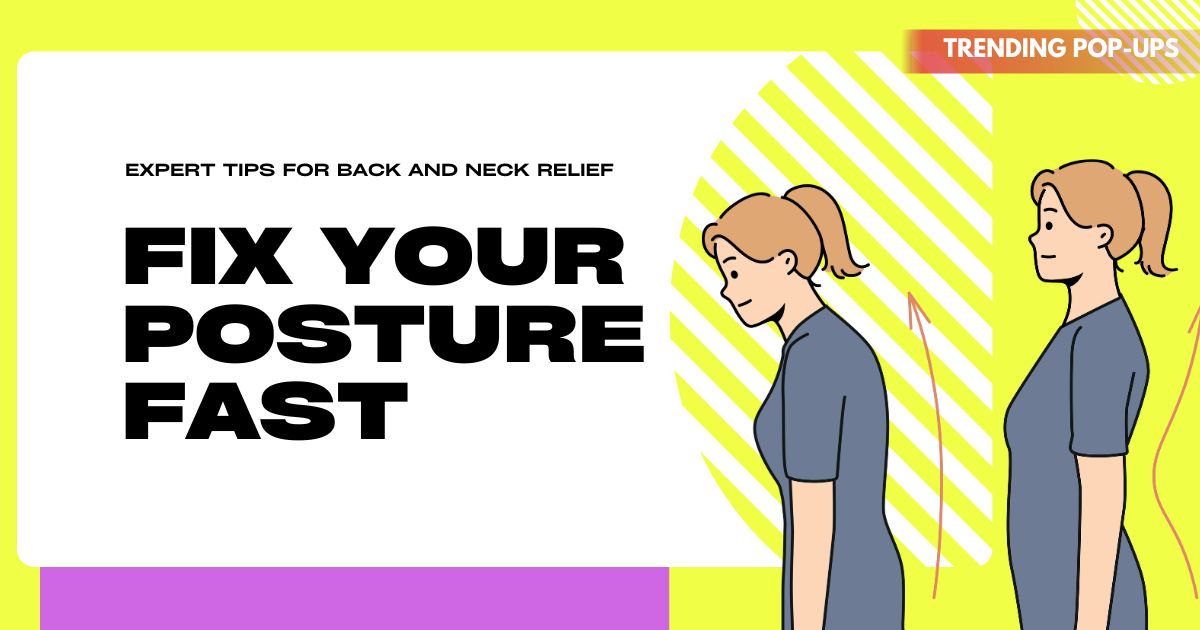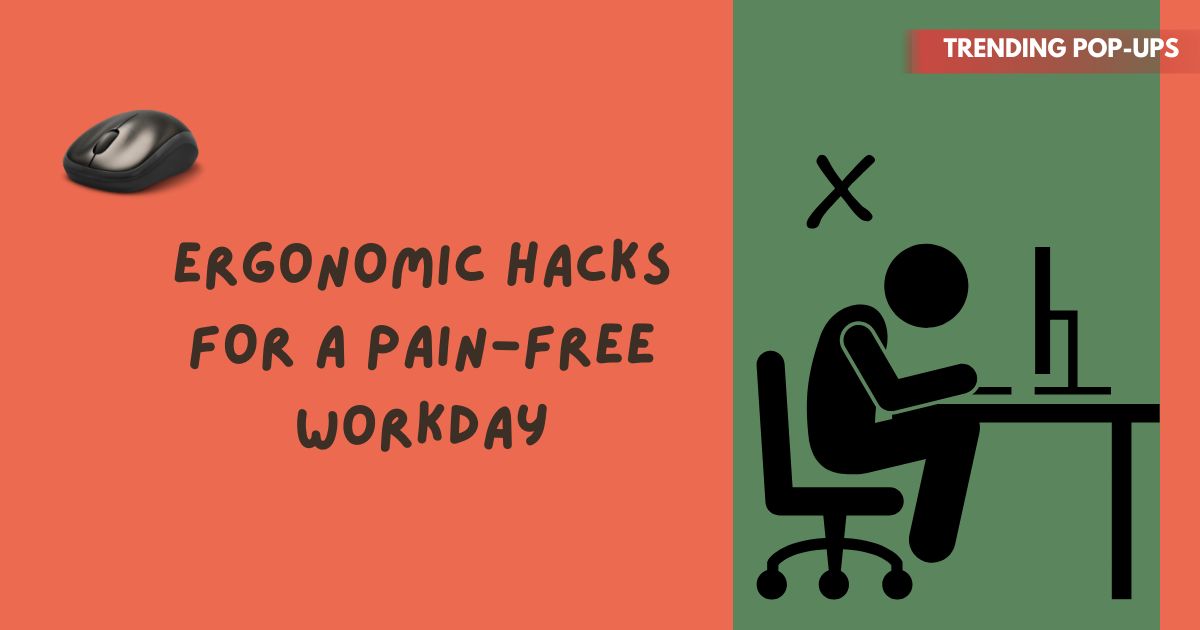Health and wellness decisions often bring us to a crossroads: should we turn to natural remedies rooted in tradition, or rely on modern medicine backed by science and technology? Both have their merits and drawbacks, and the best choice depends on the condition, urgency, and desired outcome. In this article, we’ll explore the differences, benefits, and limitations of each, and provide guidance on when to choose natural remedies over modern medicine, and vice versa.
Understanding Natural Remedies
Natural remedies are treatments derived from plants, herbs, minerals, and holistic practices. These methods have been used for centuries across cultures and include herbal teas, essential oils, acupuncture, Ayurveda, Traditional Chinese Medicine, and homeopathy.
Benefits of Natural Remedies
-
Fewer Side Effects: Natural remedies often have milder side effects compared to pharmaceutical drugs.
-
Holistic Approach: They target overall wellness, focusing on the mind-body connection.
-
Accessibility: Many remedies are easy to find at home or in health stores.
-
Preventive Care: Often used to strengthen immunity and prevent illness.
Limitations of Natural Remedies
-
Lack of Standardization: Dosages and quality can vary greatly.
-
Limited Evidence: Not all remedies are supported by rigorous scientific research.
-
Slow Results: They may take longer to show noticeable effects.
Understanding Modern Medicine
Modern medicine is based on scientific research, technological advancements, and clinical trials. It includes prescription drugs, surgery, vaccines, diagnostic tools, and hospital-based treatments.
Benefits of Modern Medicine
-
Evidence-Based: Treatments are tested for safety and effectiveness.
-
Emergency Response: Ideal for acute conditions, trauma, and surgeries.
-
Precise Dosage: Medications are regulated and standardized.
-
Advanced Technology: Diagnostic tools (like MRIs or blood tests) help identify conditions early.
Limitations of Modern Medicine
-
Side Effects: Many medications have potential adverse reactions.
-
Over-Reliance on Drugs: Some doctors may prescribe medication when lifestyle changes could help.
-
Cost: Treatments and prescriptions can be expensive.
When to Choose Natural Remedies
Natural remedies are best suited for mild conditions and preventive health. Consider them when:
-
You’re dealing with minor ailments like colds, headaches, or indigestion.
-
You want to boost immunity through herbs, vitamins, or balanced nutrition.
-
You need stress relief through meditation, yoga, or aromatherapy.
-
You prefer a gentle, long-term wellness approach without dependency on pharmaceuticals.
Examples:
-
Chamomile tea for relaxation.
-
Ginger for nausea.
-
Turmeric for reducing inflammation.
When to Choose Modern Medicine
Modern medicine is crucial when conditions are serious, acute, or life-threatening. Choose it when:
-
You face emergencies like heart attacks, strokes, or accidents.
-
You need surgery or advanced procedures.
-
You’re treating chronic diseases like diabetes, cancer, or hypertension.
-
You require vaccinations to prevent infectious diseases.
Examples:
-
Insulin for diabetes.
-
Antibiotics for bacterial infections.
-
Chemotherapy for cancer treatment.
Can Natural Remedies and Modern Medicine Work Together?
Yes—this approach is called integrative medicine. Many health professionals recommend blending the two for the best outcomes. For example:
-
Using yoga and meditation alongside therapy for anxiety.
-
Taking prescribed medicine for hypertension while adopting a heart-healthy diet.
-
Using herbal remedies for mild symptoms but turning to modern medicine when symptoms worsen.
Tips for Choosing the Right Path
-
Consult Professionals: Always speak with your doctor before combining natural and modern treatments.
-
Check Evidence: Research the scientific backing of a remedy or medication.
-
Know the Risks: Some natural remedies may interact with prescription drugs.
-
Listen to Your Body: Pay attention to how your body responds to treatments.
-
Balance is Key: Use natural remedies for prevention and lifestyle support, but rely on modern medicine for emergencies and severe health issues.
Conclusion
The debate between natural remedies vs. modern medicine is not about choosing one over the other, but about knowing when to use each wisely. Natural remedies are excellent for prevention, mild conditions, and holistic well-being, while modern medicine is indispensable for emergencies, chronic illnesses, and advanced care. By understanding their strengths and limitations, you can make informed choices that prioritize your health and longevity.
Also Read : How Social Media Affects Your Mental Health
FAQs
Q1. Are natural remedies safer than modern medicine?
Not always. While natural remedies often have fewer side effects, they can still cause harm if misused or combined with certain medications.
Q2. Can I use natural remedies alongside prescription medicine?
Yes, but always consult your doctor first to avoid harmful interactions.
Q3. Do natural remedies really work?
Some do, especially those backed by scientific research (like ginger for nausea). Others may lack strong evidence and rely on anecdotal use.
Q4. When should I avoid natural remedies?
Avoid them in emergencies, severe infections, or chronic conditions that require regulated treatment.
Q5. Is integrative medicine effective?
Yes, integrative medicine—combining natural and modern approaches—can provide well-rounded care when guided by healthcare professionals.



